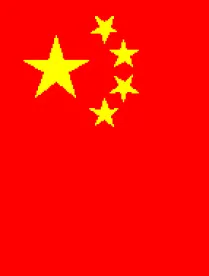Hardly a moment passes these days without another shot being fired in the many high-profile fights between the U.S. and China over trade, intellectual property and antitrust. Over the past week or so, the president has put in place higher tariffs on steel in the name of protecting U.S. producers and workers and announced tariffs and other measures will be coming in response to a range of intellectual property issues. He’s signaled more action is one the way. In addition, the U.S. International Trade Commission just rejected an antitrust case initially brought by United States Steel Corp. against China almost two years ago under the prior presidential administration. The administrative law judge had ruled the same way at the trial level before the end of 2016 and the case came to a head in a daylong appellate oral argument before the commission last spring. In what may have been a testament to high controversy, the ITC’s March 19, 2018, decision was unusual in taking almost a year for commission resolution. A similarly controversial antitrust case involving Vitamin C from China is scheduled for oral argument in the U.S. Supreme Court next month.
Tariff critics often seek benefits from low-priced steel imports, including in particular for consumers and workers interested in downstream products. Tariff proponents often seek protective tariffs to charge higher prices for upstream domestic products, hoping for more domestic investment and jobs around those upstream domestic producers.
But things aren’t so simple. Whether these particular flashpoints first arise within one specific fields of law such as international trade, intellectual property or antitrust, there is a particular problem and solution that transcends them all, and are too often overlooked by commentators and business leaders alike. The recent ITC decision is a convenient example to explore both overlooked ideas.
The overlooked problem is that, as the ITC petitioners claim, the Chinese government is using its control over many Chinese steel producers to accomplish full-spectrum coordination on both price and quantity. Mere allegations of course would have to be proven; but it’s not hard to imagine that such coordination could afford the Chinese government effective surveillance and control over the almost the entire worldwide supply chain for steel products.
This access would help the Chinese government run significant intelligence operations, both surveillance and influence, financed in part by whatever money it gets in sales. On the surveillance side, China is allegedly gaining immense access to practically every bid and ask up and down the supply chain across the global steel market in general, and our domestic market in particular. That much real-time visibility across steel markets can in turn give visibility into defense, critical infrastructure and finance. All of that information and access would sure help on the influence side whenever China might want to wield fine-grained control to later push forward or push aside practically anyone else across the steel market for at least short periods of time. That all can be like a latent poison pill used to accomplish a range of powerful economic or military objectives for the Chinese government at any later date. Notice that all of this is not merely about overall high quantity and low price, as such, which amount to a free lunch for downstream users.
A poison pill from sustained full-spectrum coordination on price and quantity could drive out competition without benefiting consumers, such as by interfering with competitors’ actual or prospective business relationships with investors, suppliers, workers, collaborators, wholesalers, distributors and the like. Imagine if a single massively dominant player in the market were able to set the bid and ask prices and quantities for almost every attempted point of sale along the supply chain for finished steel products. The degree of international uproar about allegations of bid rigging around the London interbank offered rate over the past decade suggests broad consensus that such bid rigging would be widely seen as a serious harm to the market itself.
The overlooked solution relates to how commercial trials can help private companies more than tariffs. It’s natural for the groups of investors, laborers or managers in individual domestic companies to see higher tariffs as a way to gain breathing room to charge higher prices. But increased tariffs often shift the level at which negotiation and competition play out, from one between businesses to one between nations. Instead of an individual firm negotiating or competing with a foreign counterpart, the stakes are raised to the level of a presidential administration.
That also means much less control for individual companies and their laborers, investors and managers. What if the administration decides to trade one favored industry’s tariff in exchange for something that furthers a different industry’s agenda, or some other national goal, economic or otherwise? Given that tariff disputes and negotiations between nations often percolate for several years, a new administration — even if the same political party — might arrive with a focus on different foreign policy goals and domestic champions. How does American business, in the face of our quick-shifting political landscape, fare against the likes of China or other authoritarian competitors, if steel and other industries become pawns in geopolitical games? What’s a company to do?
It may be gratifying to score the wins on the great chessboards of domestic power politics that it takes to get particular tariffs imposed. But that kind of political win for a domestic company or industry can be fleeting, or even a tiger by the tail. Individual domestic businesses may prefer the more predictable and sustainable wins they can obtain by using individual litigations over less politically responsive areas of law. These include false advertising, intellectual property infringement, antitrust and fraud. As daunting as commercial trials may seem, they have the benefit of often turning on simpler facts and these more stable areas of law that tend to last across administrations, political parties and even national boundaries. Not only can that be more helpful than tariffs for individual domestic businesses, it also helps markets overall to operate freely and fairly under the rule of law.




 />i
/>i

